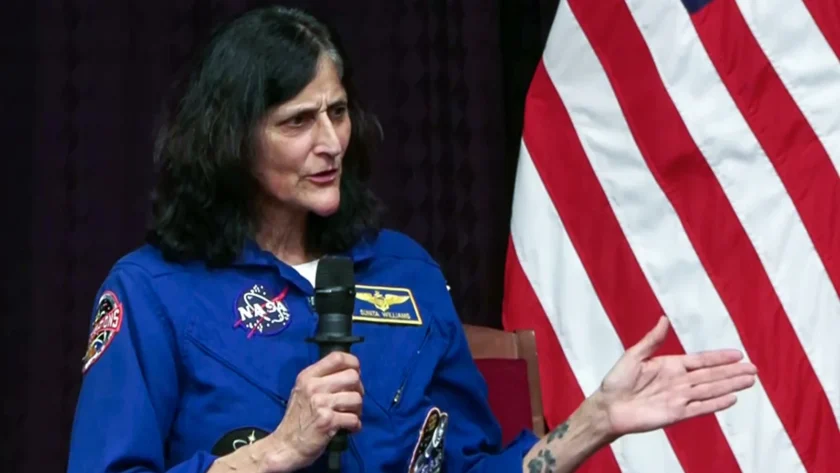Florida: Blue Origin marked a major milestone in its space ambitions as its New Glenn rocket launched from Florida on Thursday, sending two NASA satellites on a journey to Mars while successfully landing its reusable first-stage booster at sea for the first time.
The two-stage New Glenn rocket, towering 17 stories and powered by seven BE-4 engines, soared into clear skies amid cheers from mission control at Cape Canaveral. The launch had been postponed several times due to cloudy weather and a geomagnetic storm.

Approximately ten minutes after liftoff, the rocket’s booster returned to the barge Jacklyn, named in honor of Jeff Bezos’ mother, achieving a milestone in reusability for the company—a feat previously pioneered by SpaceX. Earlier this year, Blue Origin’s first attempt at a sea landing had failed.
This mission also marked the first time Blue Origin delivered NASA’s science payload to space. The twin EscaPADE spacecraft, named Blue and Gold, are set for a 22-month voyage to Mars, aiming to study the planet’s space weather and investigate how solar winds interact with Mars’ thin atmosphere. The research will shed light on why the planet transformed from a wetter, warmer environment to the arid desert observed today.
“We achieved full mission success today, and I am so proud of the team,” said Dave Limp, CEO of Blue Origin. SpaceX founder Elon Musk also congratulated Blue Origin via his social platform X, stating: “Congratulations @JeffBezos and the @BlueOrigin team!”
In addition to the Mars mission, the rocket carried a secondary payload from satellite operator Viasat VSAT.O, conducting a demonstration of in-space telemetry relay. The test was confirmed successful.

Founded in 2000 by Bezos, Blue Origin has been known primarily for its suborbital space tourism via the New Shepard vehicle, which has carried over 200 research experiments and wealthy passengers to the edge of space. The New Glenn rocket, designed as a heavy-lift vehicle, is central to Blue Origin’s ambition to compete with SpaceX in the orbital launch market.
Named after John Glenn, the first American to orbit Earth, New Glenn produces roughly twice the liftoff thrust of SpaceX’s Falcon 9 and matches the Falcon Heavy’s performance, while offering greater cargo capacity. NASA’s EscaPADE mission cost about $55 million, of which $18 million went to Blue Origin for this launch.
Blue Origin continues to expand its capabilities, supplying engines for other rockets, developing a crewed lunar lander for NASA’s Artemis program, and collaborating on a commercial space station. However, the company still trails SpaceX, which has launched nearly 280 missions in the past two years and is developing the fully reusable Starship for missions to the Moon, Mars, and beyond.
Thursday’s mission, combining successful satellite deployment and the first booster landing on a customer flight, positions Blue Origin as a growing competitor in the global space launch sector.









